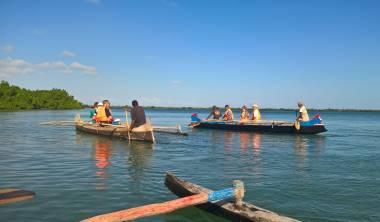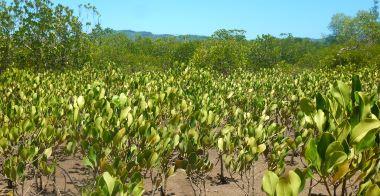Approach
The environmental project contributes to ensuring that the use of natural resources in and around protected areas is sustainable and climate-resilient. It works in the DIANA, Boeny, Atsimo-Andrefana and Analamanga regions.
By generating added value from natural resources, the population learns to manage protected areas and forests sustainably and to generate permanent income, for instance through honey, ecotourism, timber or ‘green’ charcoal.
The project supports micro enterprises and cooperatives with producing and marketing ‘green’ charcoal, i.e. charcoal from sustainable forestry produced in more efficient kilns. Energy-saving cooking stoves for households round off the commitment.
The project provides support with updating existing and developing new policies and legislation in the sector as well as with creating municipal and regional land-use plans.
The management of small-scale mines is improved in order to comply with fair trade standards in the medium term. Dialogue forums with miners, specialist services, the private sector and civil society contribute to responsible governance in small-scale mining. Abandoned mining sites are rehabilitated. The measures are cofinanced by the Australian Government (Department of Foreign Affairs and Trade, DFAT).
The ability to adapt to the effects of climate change in this highly vulnerable country is strengthened through national action plans, systematic consideration in key policy areas and public relations work. For instance, adaptation projects are implemented at community level. This work is cofinanced by the European Union.
Agricultural/forestry value chains improve incomes in households in the DIANA/Ambilobe region. To safeguard the natural production base


